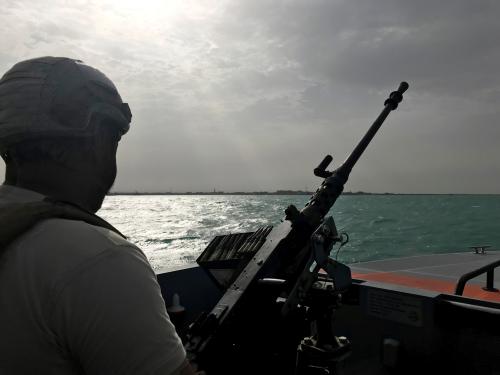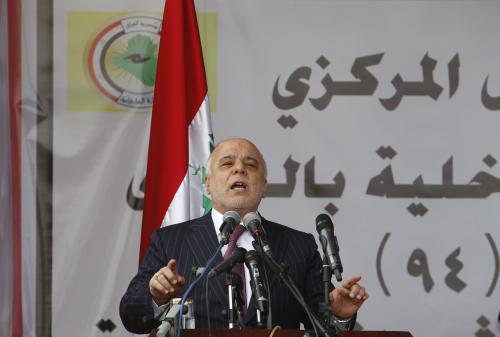As the Afghanistan mission has encountered growing troubles this summer, the debate about whether to lower U.S. goals and focus more narrowly on counterterrorism has again re-emerged. Such a shift sounds appealing. If advocates are right, we could protect the United States against terrorism while lowering costs, casualties and commitment in Afghanistan – a war that by some measures is about to become the longest in U.S. history.
Those who favor the counterterrorism option – as opposed to deeper engagement – imply that we can destroy al-Qaeda’s core with a few U.S. special forces teams, modern intelligence fusion centers, cruise-missile-carrying ships and unmanned aerial vehicles of the type that recently killed Pakistani extremist leader Baitullah Mehsud. Some advocates of this kind of plan would continue our intense efforts to train Afghan security forces. Others would not. But all envision a dramatically reduced U.S. role.
Pretty good – if it would work.
Alas, it would not. In fact, we have seen this movie before. In the early years after the Taliban fell in 2001, the main American presence in Afghanistan consisted precisely of the above kinds of assets and attempted precisely what counterterrorism advocates now favor as though they are coming up with something new. That was Secretary of Defense Donald Rumsfeld’s “light footprint” strategy.
It’s the intelligence, stupid
The fundamental reason that a counterterrorism-focused strategy fails is that it cannot generate good intelligence. Al-Qaeda and the Taliban know not to use their cellphones and satellite phones today, so our spy satellites are of little use in finding extremists. We need information from unmanned low-altitude aircraft and, even more, from people on the ground who speak the language and know the comings and goings of locals. But our Afghan friends who might be inclined to help us with such information would be intimidated by insurgent and terrorist forces into silence — or killed if they cooperated — because we would lack the ability to protect them under a counterterrorism approach.
Afghan forces simply do not have the capacity to do the protecting themselves at this point and, given the challenges of building up new institutions in Afghanistan after decades of war, will not have the ability until at least 2012. Even that distant date will be postponed further if we do not deploy enough forces to mentor and partner with Afghans as they build up an army and police force largely from scratch. This adds up to a prescription for a drying up of intelligence.
The second reason a counterterrorism-oriented strategy would fail is that, if we tried it, we would likely lose our ability to operate unmanned aircraft where the Taliban and al-Qaeda prefer to hide. Why? If we pulled out, the Afghan government would likely collapse. The secure bases near the mountains of the Afghan-Pakistan border, and thus our ability to operate aircraft from them, would be lost. Our ability to go after Afghan resistance fighters would deteriorate. And the recent momentum we have established in going after Pakistani extremists would be lost.
For those who have forgotten the realities of the 1990s — when we tried to go after Osama bin Laden without access to nearby bases by using ships based in the Indian Ocean — the two- to four-hour flight times of drones and cruise missiles operating off such ships made prompt action to real-time intelligence impractical.
Third, we would likely lose our allies with this approach. A limited mission offers nothing to the Afghans, whose country is essentially abandoned to the Taliban, or to the Pakistanis, who would similarly see this as the first step toward cut and run. The NATO allies would also smell in a “reduced” mission the beginning of withdrawal; some if not most might try to beat us to the exit.
Once the Taliban is back in power in Afghanistan, al-Qaeda will not be far behind. Our top nemesis will be able to salvage a victory in the very place from which it launched the 9/11 attacks eight years ago. Al-Qaeda will have its favorite bases and sanctuaries back, as well as a major propaganda win.
A major setback, a major danger
Given how badly the situation in Afghanistan has deteriorated since 2001, we might ultimately have to fall back on a narrow counterterrorism option. But that would be a major setback, and a major danger, for the United States — not a clever, lower-cost alternative strategy to what we are pursuing in Afghanistan today.
Some say that the stakes aren’t that high because al-Qaeda doesn’t really need a sanctuary to do its dirty work. But this misses the point and fails to distinguish between the bad and the worse. Having a physical sanctuary, in addition to being able to claim victory against the United States and its allies, would make organization, training and communication far easier for bin Laden and his cronies.
The right path remains what President Obama proposed in March — working to protect the Afghan population while building up Afghan state institutions such as the army and police. This approach will take time and perhaps more resources. But alas, in this kind of war, there is little choice.



Commentary
Op-edWhy We Can’t Go Small In Afghanistan
September 24, 2009